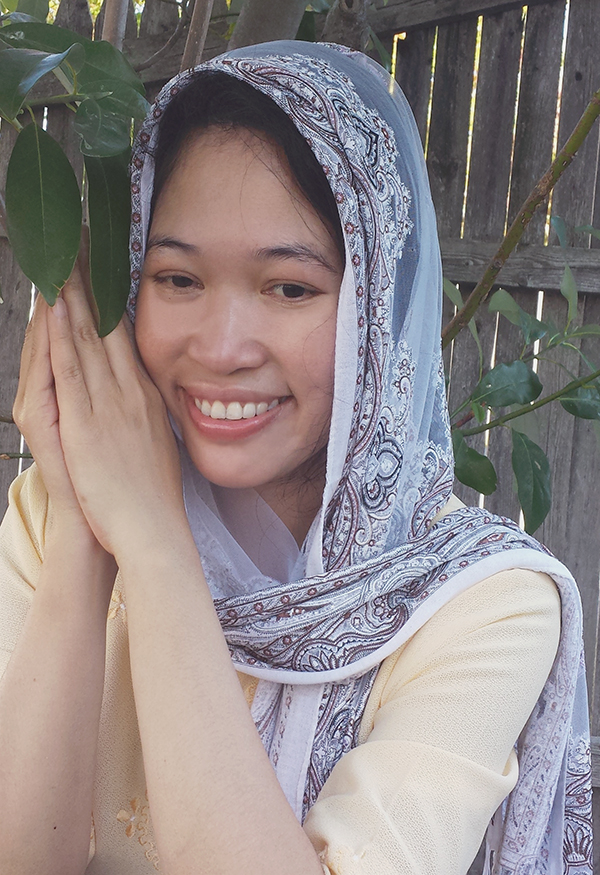-
1 December 31, 2020
-
Buddhist Theravada Pali Chanting by Venerable Vajiradhamma
Comment December 31, 2020One of the best Pali Buddhist Chanting. It is a very peaceful, tranquil, pleasant and harmonious chanting.
This Chanting has helped many people to become peace, calm and tranquil, build mindfulness while listening and/or chant attentively, re-gain confidence from fear and uncertainty, bring happiness and positive energy for those who are in sick and those in their last moment in this very life (as hearing is thought to be the last sense to go in the dying process). May you get the benefits of this chanting too.
This compilation consists of Recollection of Buddha (Buddhanusati or Itipiso), Recollection of Dhamma (Dhammanusati), Recollection of Sangaha (Sanghanusati), Mangala Sutta, Ratana Sutta, Karaniya Metta Sutta, Khandha Sutta, Bhaddekaratta Gatha, Metta Chant, Accaya Vivarana, Vandana, Pattanumodana, Devanumodana, Punnanumodana and Patthana.
This compilation is made possible by Venerable Samanera Dhammasiri getting the permission from Venerable Vajiradhamma Thera to compile and distribute, and co-edit and proofing.
Website: www.dhammalink.com
-
សីលប្រាំ
Comment December 31, 2020សីលប្រាំ — អានដោយ សុស ចិន្តាមុនី
រីឯសីលប្រាំ ព្រះពុទ្ធទ្រង់ផ្តាំ ធ្វើចិត្តឲ្យស្អាត
ទី១ហៅថា បាណាតិបាត ហាមឃាត់ដាច់ខាត
កុំសម្លាប់សត្វ ។ទី២អទិន្នា យើងទាំងអស់គ្នា ត្រូវចេះអារកាត់
កុំលួចទ្រព្យគេ ឲ្យប្រុងប្រយ័ត្ន ក្រែងមានវិបត្តិ
ដិតដល់ខ្លួនយើង ។ទី៣កាមេ ទាំងយើងទាំងគេ កុំជែងចចើង
ប្រពន្ធប្តីគេ ទាបថោកឥតថ្កើង ត្រូវលះវៀរឡើង
កុំយកខ្លួនបៀត ។ទី៤មុសា ព្រះពុទ្ធហាមថា ធម៌មុសាវាទ
កុំភូតកុហក់ ប្រវ័ញ្ចមិត្តញាតិ ធ្វើឲ្យឃ្លៀងឃ្លាត
អស់ទ្រព្យសម្បត្តិ ។ទី៥សុរា ចុងក្រោយហាមថា ឲ្យប្រុងប្រយ័ត្ន
កុំសេពសុរា មេរ័យវិបត្តិ ត្រូវចេះដុសខាត់
រក្សាសីល៥ ។បើយើងរក្សា សីល៥ជាប់ណា នោះត្រូវចងចាំ
ថាយើងស្លាប់ទៅ មិនមានសាំញ៉ាំ អុ្នកជាប់សីលប្រាំ
ទៅកាន់ឋានសួគ៌ ។ -
Understanding the mind as it is
1 December 31, 2020If we meditate on the mind, we can understand the mind as it is. With this understanding, whatever good qualities need to be developed will be developed, and whatever negative qualities need to be abandoned will be abandoned. Along the way good qualities, such as faith and confidence in the Buddha, the Dharma, and the Sangha, the energy to practice, love, and compassion, will become stronger and stronger. All of this is just through understanding the mind as it is. ~ Thrangu Rinpoche
-
Craving, anger, jealousy, despair, fear, and wrong perceptions
1 December 31, 2020Happiness is not possible unless we are free from afflictions – craving, anger, jealousy, despair, fear, and wrong perceptions. Freedom is one of the characteristics of nirvana. Some kinds of happiness actually destroy our body, our mind, and our relationships. 2019Freedom from craving is an important practice. Look deeply into the nature of what you think will bring you happiness and see whether it is, in fact, causing those you love to suffer. You have to know this if you want to be truly free. Come back to the present moment, and touch the wonders of life that are available. There are so many wholesome things that can make us happy right now, like the beautiful sunrise, the blue sky, the mountains, the rivers, and all the lovely faces around us. ~ Thich Nhat Hanh
-
Meditation is one of the rare occasions when we’re not doing anything
Comment December 31, 2020Meditation is one of the rare occasions when we’re not doing anything. Otherwise, we’re always doing something, we’re always thinking something, we’re always occupied. We get lost in millions of obsessions and fixations. But by meditating – by not doing anything – all these fixations are revealed and our obsessions will naturally undo themselves like a snake uncoiling itself. ~ Dzongsar Khyentse Rinpoche
-
Just be Yourself!
4 December 29, 2020There are women’s fashion magazines that tell us that in order to succeed, you have to look a certain way, and use a certain product. Many young people in our society want to have cosmetic surgery in order to meet that standard of beauty. They suffer very much, because they cannot accept their bodies. When you do not accept your body as it is, you are not your true home. Every child is born in the garden of humanity as a flower. Your body is a kind of flower, and flowers differ from one another. Breathing in, I see myself as a flower. Breathing out, I feel fresh. ~Thich Nhat Hanh
-
The Fourth Noble Truth
Comment December 29, 2020What is the Noble Truth of the Way Leading to the Cessation of Suffering? It is the Noble Eightfold Path, that is to say: Right View, Right Intention, Right Speech, Right Action, Right Livelihood, Right Effort, Right Mindfulness and Right Concentration.
There is this Noble Truth of the Path leading to the Cessation of Suffering: such was the vision, insight, wisdom, knowing and light that arose in me about things not heard before….
This Noble Truth must be penetrated to by cultivating the Path….
This Noble Truth has been penetrated to by cultivating the Path: such was the vision, insight, wisdom, knowing and light that arose in me about things not heard before.
[Samyutta Nikaya LVI, 11]
The Fourth Noble Truth, like the first three, has three aspects. The first aspect is: ‘There is the Eightfold Path, the atthangika magga – the way out of suffering.’ It is also called the ariya magga, the Ariyan or Noble Path. The second aspect is: ‘This path should be developed.’ The final insight into arahantship is: ‘This path has been fully developed.’
The Eightfold Path is presented in a sequence: beginning with Right (or perfect) Understanding, samma ditthi, it goes to Right (or perfect) Intention or Aspiration, samma sankappa; these first two elements of the path are grouped together as Wisdom (panna). Moral commitment (sila) flows from panna; this covers Right Speech, Right Action and Right Livelihood – also referred to as perfect speech, perfect action and perfect livelihood, samma vaca, samma kammanta and samma ajiva. Continue reading
-
The Story of a Group of Six Bhikkhus
Comment December 29, 2020Verse 129: All are afraid of the stick, all fear death. Putting oneself in another’s place, one should not beat or kill others.
The Story of a Group of Six Bhikkhus
While residing at the Javana monastery, the Buddha uttered Verse (129) of this book, with reference to a group of six bhikkhus (chabbaggi) who picked a quarrel with another group comprising seventeen bhikkhus.
Once seventeen bhikkhus were cleaning up a building in the Jetavana monastery-complex with the intention of occupying it, when another group comprising six bhikkhus arrived on the scene. The group of six said to the first group, “We are senior to you, so you had better give way to us; we will take this place.” The group of seventeen did not give in, so the chabbaggis beat up the other group who cried out in pain. The Buddha learning about this reprimanded them and laid down the disciplinary rule forbidding bhikkhus to beat others.
Then the Buddha spoke in verse as follows:
Verse 129: All are afraid of the stick, all fear death. Putting oneself in another’s place, one should not beat or kill others.
Dhammapada Verse 129
Chabbaggiya Bhikkhu VatthuSabbe tasanti dandassa
sabbe bhayanti maccuno
attanam upamam katva
na haneyya na ghataye.Source: Tipitaka
-
If we have both mindfulness and awareness
Comment December 28, 2020If we have both mindfulness and awareness, when the mind is wild and distracted, thinking only about worldly things, we should think that until now we have been caught up in the suffering of samsara, and realize how useless everything is that we do in that regard. If the mind is spoiled by being caught up in that way, there will be no way to become free from the suffering of the three lower realms. If the mind is not spoiled, our bliss and happiness will increase, just like that of the exalted ones. Thinking of that, we should try to heal the mind. In the beginning, it is very difficult to control, but gradually, as we get used to doing so, it becomes easier. ~ Dilgo Khyentse Rinpoche










